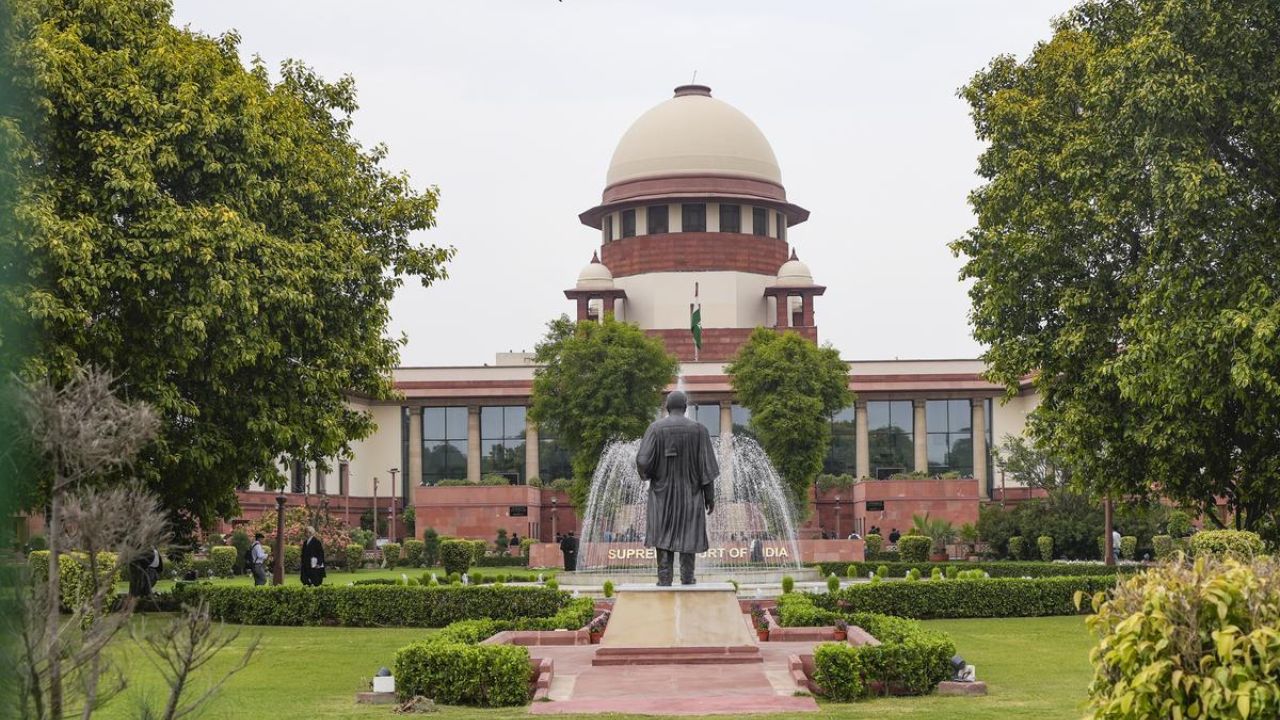 English
English

The Supreme Court then asked the Centre about the procedure and guidelines laid down in such cases.

Supreme Court of India
New Delhi: After receiving information about a foreign national accused in a fraud case absconding after overstaying his bail period, the Supreme Court has stressed the need for a policy to ensure that foreign nationals committing crimes in the country do not flee from justice.
On December 4 last year, the apex court had set aside the May 2022 order of the Jharkhand High Court granting bail to the accused Alex David.
No bilateral treaty between Nigeria and India
When the matter came up for hearing before a bench of Justices Dipankar Dutta and Augustine George Masih on August 26, the bench said that there is no bilateral treaty between Nigeria and India regarding the extradition of a Nigerian citizen to face criminal proceedings in the country.
Court leaves option for further action
The bench said, "The special leave petition is disposed of, confirming the order cancelling the bail, but leaving the option open to the Central Government to formulate an appropriate policy or initiate further action as deemed necessary and appropriate so that foreign nationals do not flee from the path of justice after committing crimes in India."
David was booked for several offences including fraud and the IT Act.
After he was granted bail by the High Court, the state challenged the order in the Supreme Court.
But the apex court was told that David had absconded by breaking the bail period.
The Supreme Court then asked the Centre about the procedure and guidelines laid down in such cases.
The Centre filed an affidavit
The Centre filed an affidavit, indicating the existence of comprehensive guidelines for investigation and issuance of letters rogatory abroad in relation to criminal cases, mutual legal assistance requests and service of summons, notices and judicial documents.
On December 4 last year, the Supreme Court set aside the high court order and directed the Centre to take appropriate steps as suggested in its guidelines. When the matter came up for hearing on August 26, the counsel appearing for the Centre produced before the bench a letter addressed to the Solicitor General by the Adviser (Legal), Ministry of External Affairs.
No extradition treaty between India and Nigeria
The bench perused the contents of the letter, which read, "It is notable that in the absence of a bilateral extradition treaty between India and Nigeria, the Nigerian authorities are unlikely to extradite their citizen."
The letter said the extradition request was forwarded to the Indian High Commission in Abuja, Nigeria, on the basis of "assurance of reciprocity" for onward transmission to the relevant Nigerian authorities.